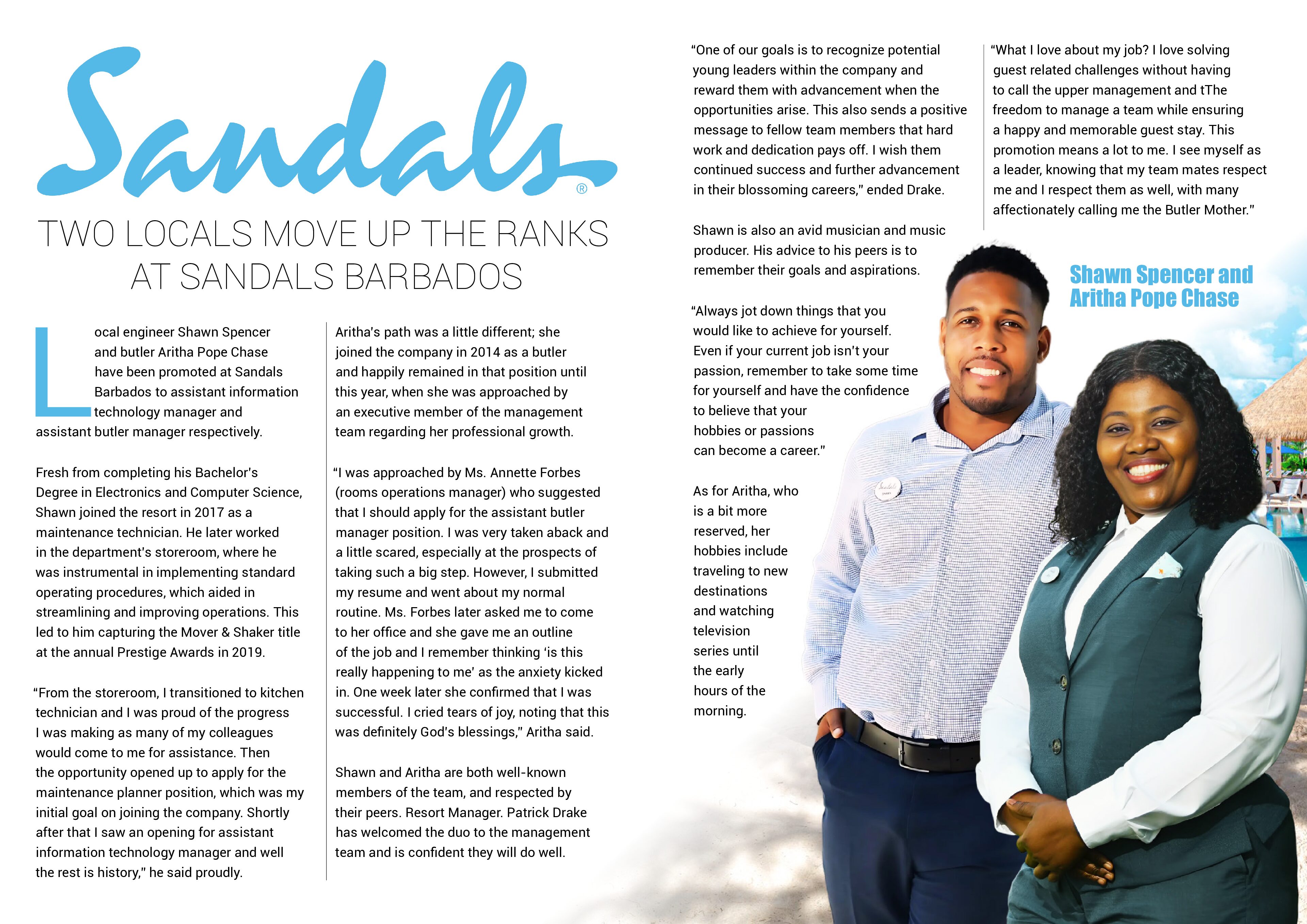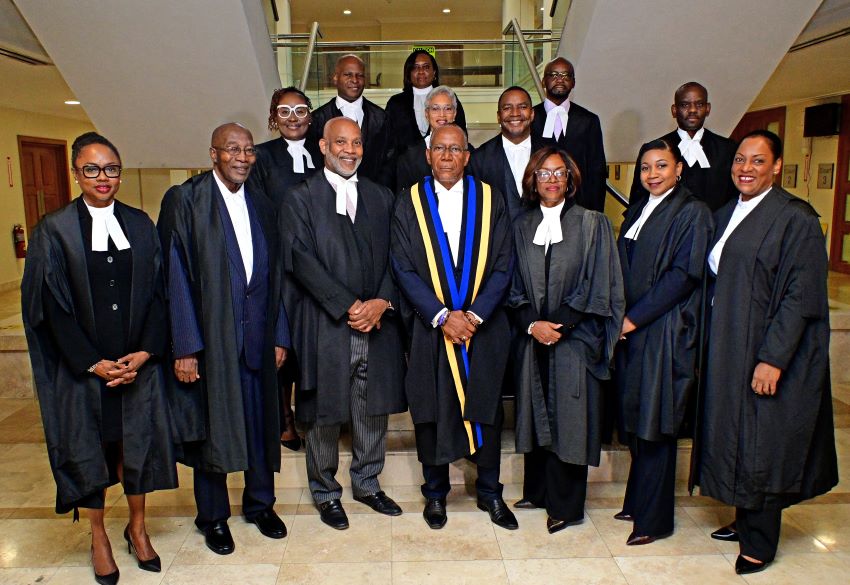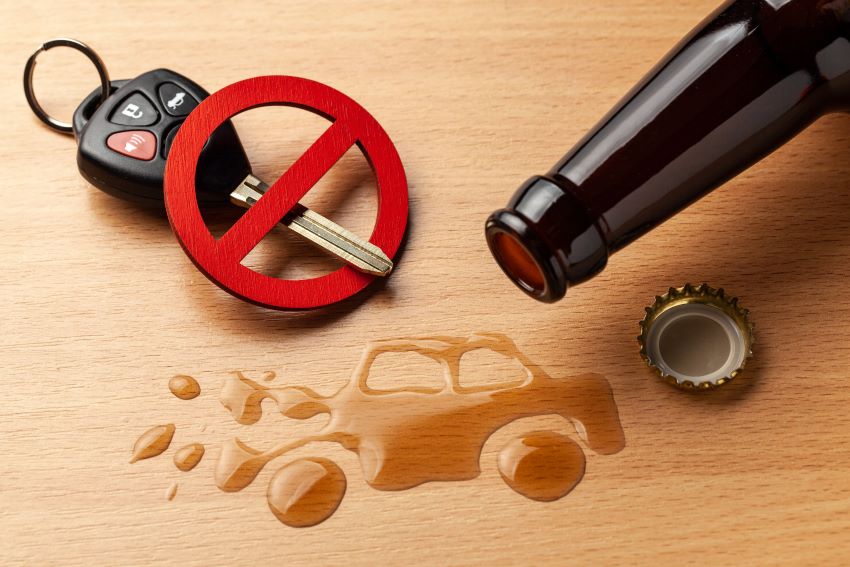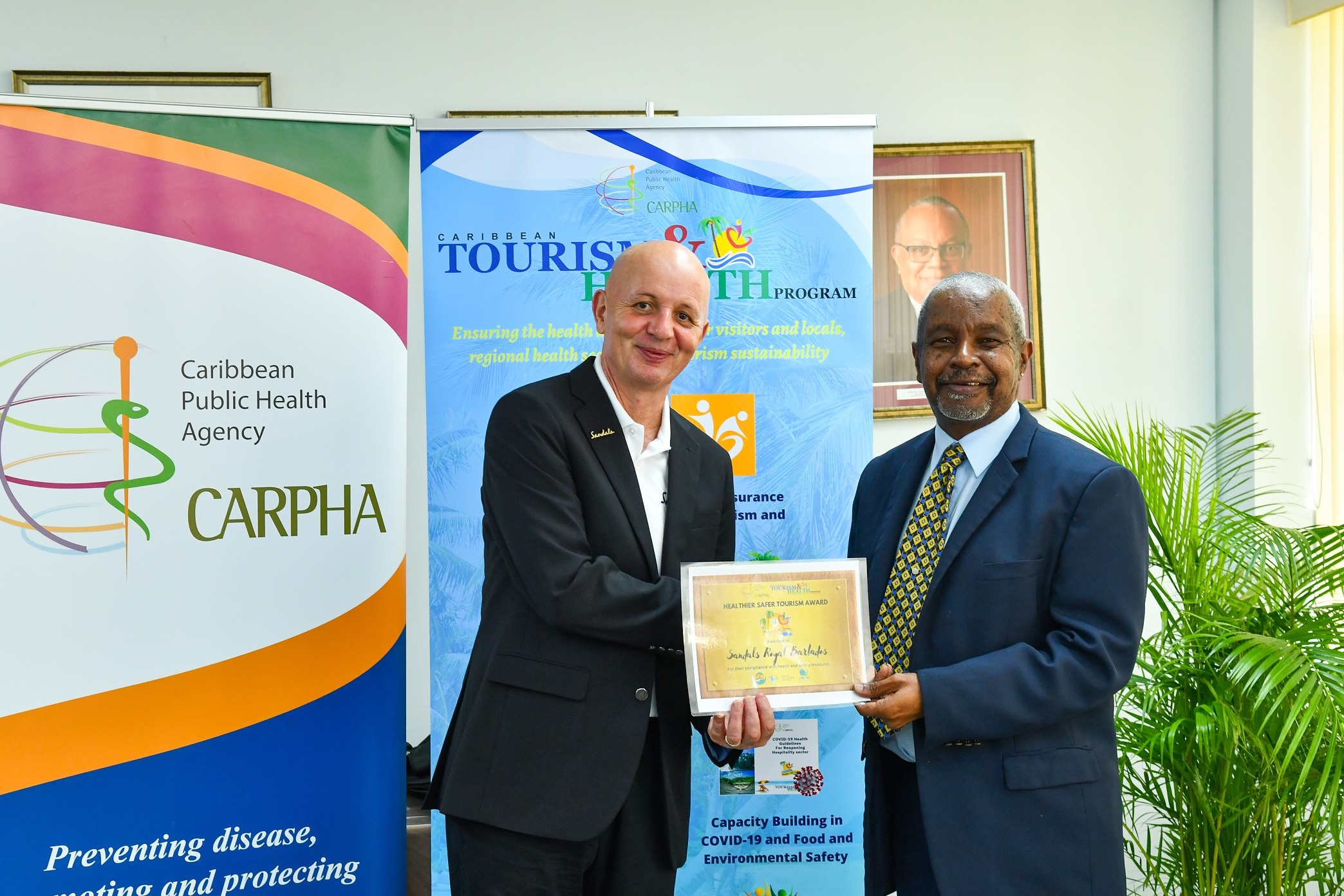Eleven of Barbados’ newest Senior Counsels (SCs) were admitted to the Inner Bar, during a Special Sitting of the Supreme Court.
They are: The Hon. Wilfred Abrahams; Mrs. Tammy Bryan; Ms. Gillian Henderson Clarke; The Hon. Rudolph Greenidge; Ms. Kathy-Ann Hamblin; Mr. Edmund Hinkson; Ms. Anika Jackson; Mr. Stephen Lashley; Ms. Angela Mitchell-Gittens; Mr. Alliston Seale; and Ms. Liesel Weekes. His Hon. Arthur Holder was absent because he is on national duty overseas.
Those attending the sitting included Chief Justice Sir Patterson Cheltenham; Attorney General Dale Marshall; Justices of Appeal; Judges of the High Court; the Senior Counsels and their families.
In a brief address, Attorney General Marshall said it was appropriate that the step should be taken at this time. “It is fitting that in our new republic, shorn of the umbilicus which connected our institutions and our very psyche to the monarchy, that we should take this step in completing the process of true independence.
“These 11 attorneys, drawn from among our finest, have the singular honour of being the first SCs in our republic,” the Attorney General stated.
He noted that from the day Barbados took on a republican form of Government, a debate has raged over whether the island should keep the designation tied to a distant monarch, or forge its own path, and if on this path, the pledge should be to the State of Barbados instead of to the UK monarch.
“There was little doubt that in respect of other offices – parliamentarians, judges and the President itself, any duty and fealty should be owed to our Nation, and yet somehow, we, the lawyers, have been timid about accepting that the same precept would apply to the upper echelons of the legal profession. Some members of the Inner Bar, quite peculiarly, see nothing odd about continuing to accept an obligation to plead the King’s cause, in circumstances where these Courts are no longer the King’s Courts,” Mr. Marshall said.
He pointed out that on March 13, 1975, the Cabinet of Barbados determined that the granting of QCs would cease and under the new system, 15 attorneys were appointed to the rank of Senior Counsel. He noted, however, that the legal profession made representations to the Government to revert to the practice of appointing Qcs, and that the SCs should be referred to as QCs.
He added that on December 6, 1979, Cabinet agreed the title “Senior Counsel” conferred on members of the legal profession, should be re-designated “Queen’s Counsel”.
Chief Justice Sir Patterson Cheltenham warmly congratulated the new Senior Counsels on their appointments.
Speaking on behalf of his colleagues and himself, Mr. Greenidge thanked those who made the recommendation for them to be called to the Inner Bar.
He stated: “We know that we will measure up to everything which you expect of us…. I can safely say that each and every one of us has gone beyond our legal practice and has made a contribution to the development of Barbados.” (PR/GIS)
Caption: Attorney General Dale Marshall (front row, third from left); Chief Justice Sir Patterson Cheltenham (centre); and President of the Bar Association Kaye Williams (front row, third from right), pose with eleven of Barbados’ newest Senior Counsels who were admitted to the Inner Bar

 Sports2 weeks ago
Sports2 weeks ago
 Business2 weeks ago
Business2 weeks ago
 Government3 weeks ago
Government3 weeks ago
 International4 weeks ago
International4 weeks ago
 Features4 weeks ago
Features4 weeks ago
 Government3 weeks ago
Government3 weeks ago
 Business2 weeks ago
Business2 weeks ago
 Education4 weeks ago
Education4 weeks ago































